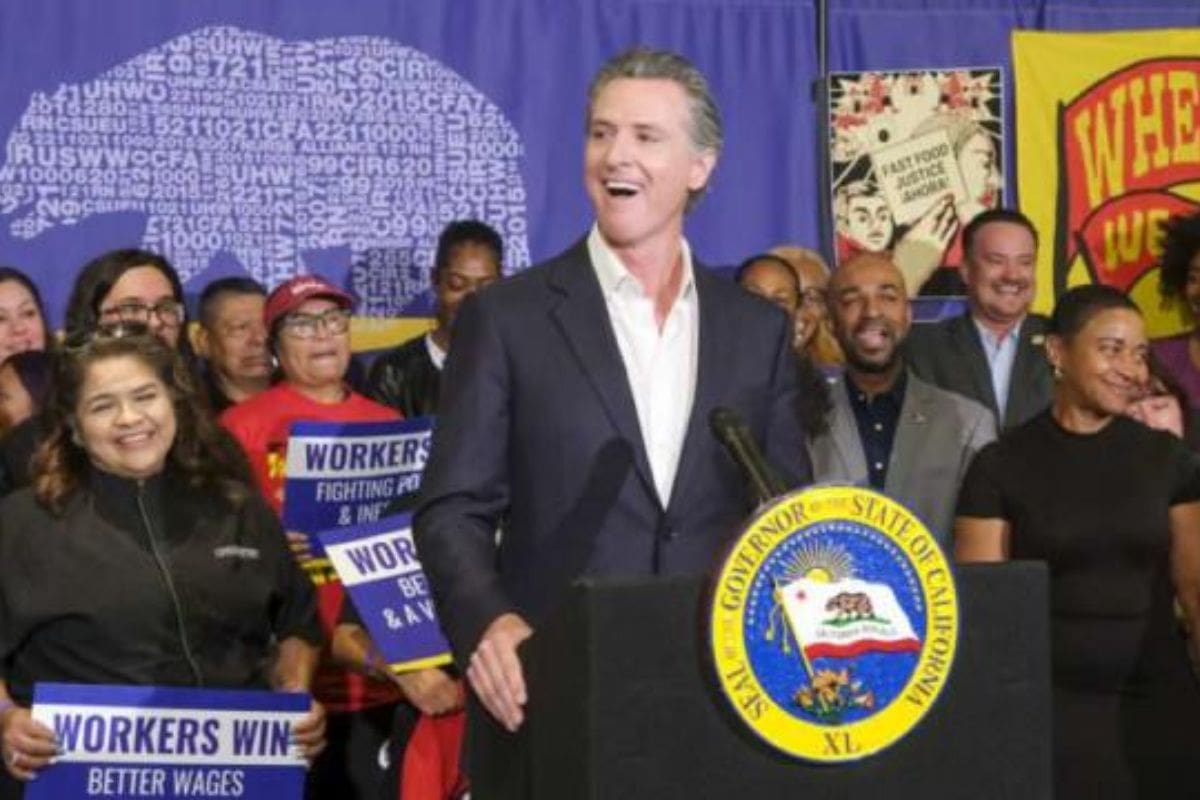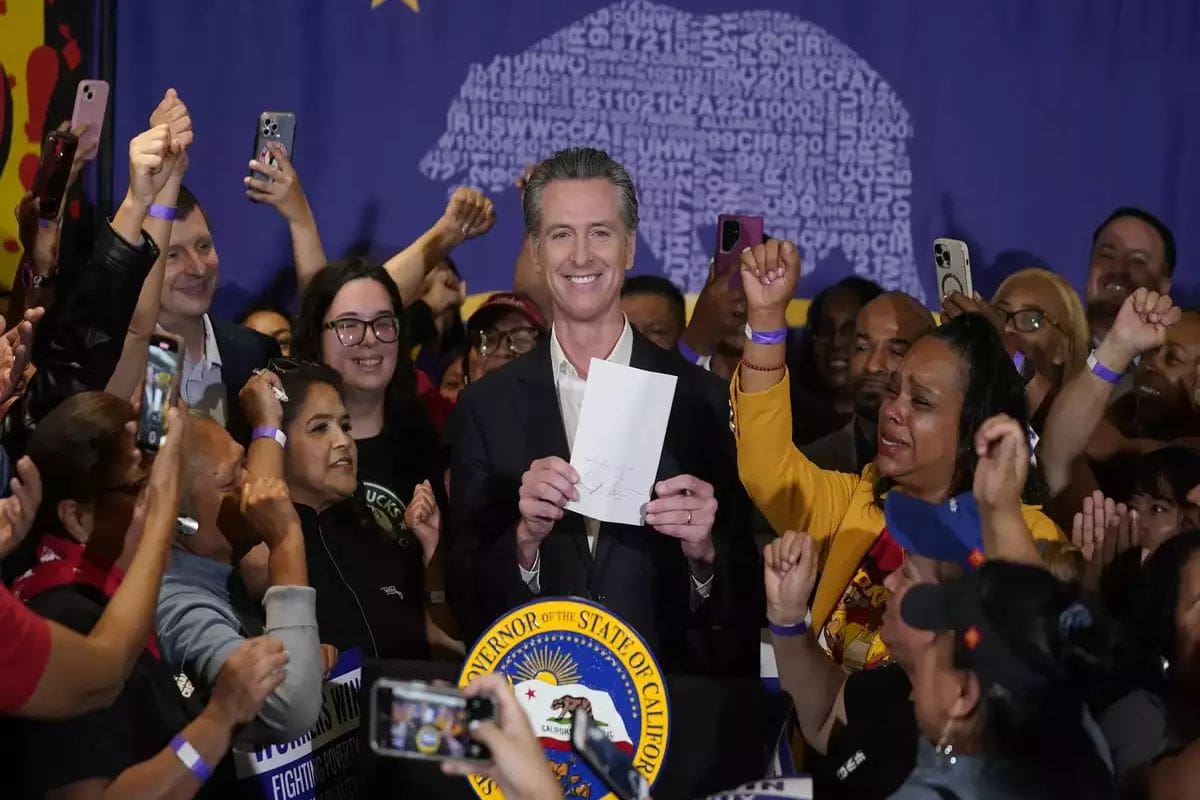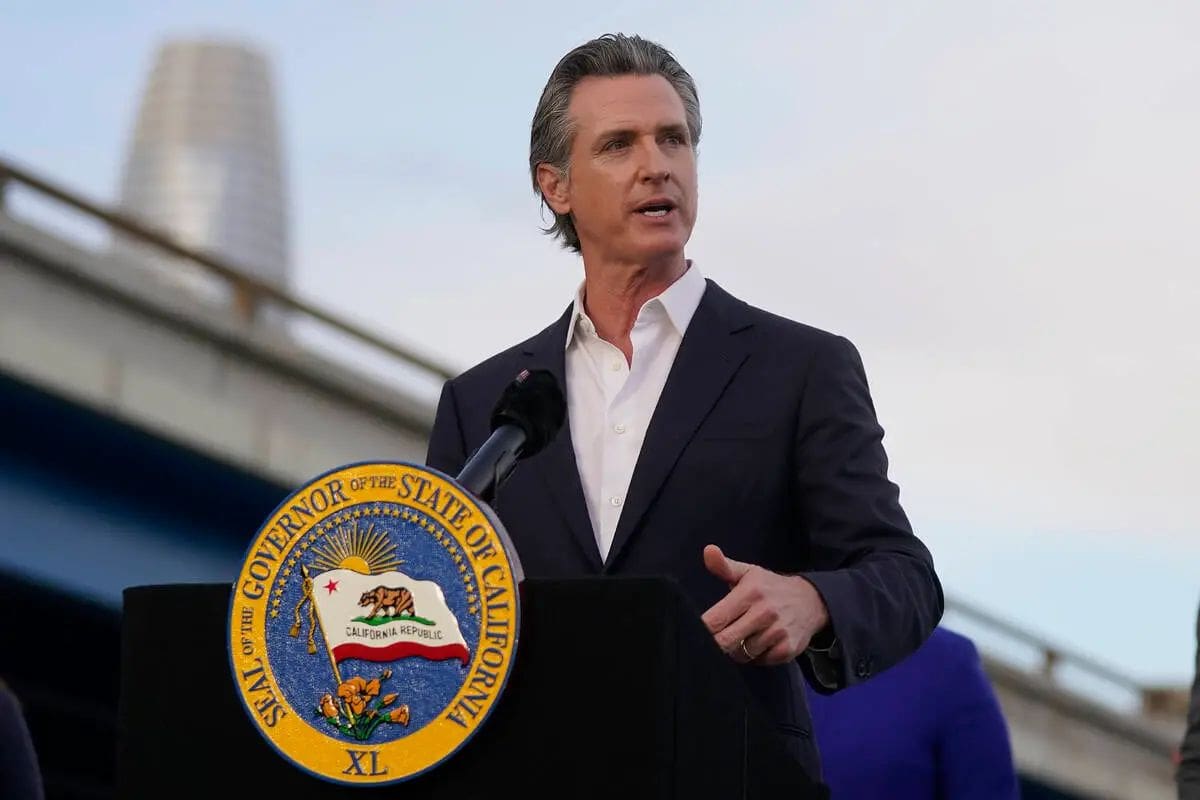California New Wage Law: California’s new minimum wage law has ignited a firestorm of controversy, with accusations of cronyism and backroom deals swirling around the legislation. As the debate rages on, stakeholders are pointing fingers at connections between policymakers and certain industries benefiting from exemptions to the wage hike.
The intricate web of relationships is raising eyebrows and fueling suspicions about the true motives behind the law. With Flynn’s vocal opposition and labor unions flexing their muscles, the stage is set for a showdown that could reshape California’s economic landscape.
California’s Minimum Wage Dilemma
California’s Minimum Wage Dilemma has ignited a fiery debate among policymakers, economists, and the public, as the state’s imminent wage hike for fast-food workers unveils controversial exemptions that raise eyebrows and suspicions regarding political influences.
The decision to grant special treatment to bread-baking establishments like Panera Bread, allowing them to maintain a lower wage rate amidst the general increase to $20 per hour, has set tongues wagging. This peculiar exemption not only deviates from the principle of fair and equal pay but also hints at potential cronyism in the corridors of power.
Governor Gavin Newsom’s alleged advocacy for this exception further fuels speculation about hidden agendas and backdoor deals. The public is rightfully concerned about the integrity of the wage policy and the transparency of decision-making processes.
Such selective treatment undermines the very essence of a minimum wage increase, casting a shadow of doubt over the true motivations driving this controversial maneuver.
Bread Exception: Unraveling the Connections
Amidst the unfolding saga of California’s minimum wage controversy, the intricate web of political connections behind the bread exception, particularly concerning Panera Bread, reveals a troubling narrative of influence and favoritism. The exemption for bread-baking companies like Panera Bread highlights how billionaire Greg Flynn, a major Panera Bread franchise owner in California, leveraged his ties with Governor Newsom to secure special treatment.
With a longstanding relationship dating back to high school, Flynn’s significant political contributions, including a hefty $100,000 donation against the governor’s recall effort, underscore the cozy relationship between big business and political power. The reported open communication between Flynn and Newsom sheds light on the behind-the-scenes lobbying that resulted in this unique exemption.
This revelation raises serious concerns about the fairness and transparency of California’s minimum wage policy, suggesting that cronyism and special interests may have played a significant role in shaping the legislation. The bread exception serves as a glaring example of how money and connections can influence decision-making, leaving many questioning the integrity of the process.

Flynn’s Opposition and Lobbying Efforts
The controversial exemption for bread-baking companies like Panera Bread in California’s minimum wage law has shed light on Greg Flynn’s staunch opposition and aggressive lobbying efforts against the wage increase.
Flynn, a vocal critic of the minimum wage hike, has adamantly argued that it would have devastating effects on the franchise business model in the state. His op-ed pieces and reported endeavors to sway the governor’s staff to exclude Panera Bread from the list of fast-food restaurants subject to the wage increase underscore his relentless lobbying against the policy.
The intricate web woven between Flynn’s opposition stance, his significant political donations, and the eventual exemption granted to bread-baking establishments like Panera Bread reveal a troubling crony ‘capitalism’ element embedded within California’s policymaking.
Flynn’s actions have sparked a heated debate regarding the influence of special interests in shaping legislation and have drawn attention to the potential distortions caused by powerful lobbying efforts in the state’s political landscape.
Labor Union Influence and Policy Dynamics
Labor union influence in shaping economic policies has revealed a concerning trend where personal relationships and political power sway policy decisions, highlighting a departure from merit-based governance. This incident involving the SEIU in negotiating the bread exception brings to light the alarming reality of cronyism infiltrating policy dynamics. Here are three glaring aspects to consider:
- SEIU’s Political Leverage: The SEIU’s strategic maneuvering to ensure favorable conditions for its members through political clout raises questions about the fairness and transparency of the legislative process.
- Exemptions Based on Personal Relationships: The preferential treatment given to certain groups based on personal connections rather than objective criteria erodes the foundation of a just and equitable policy framework.
- Merit-Based Policy Decisions at Risk: With policy outcomes being swayed by relationships and power plays, the integrity of merit-based governance is compromised, jeopardizing the interests of the broader population.


ALSO READ: Discover the Smoking Rules at Disneyland and Disney California Adventure – What You Need to Know
News in Brief
Controversy surrounds California’s new minimum wage law as accusations of cronyism and backroom deals emerge. With exemptions benefiting certain industries, questions arise about connections between policymakers and stakeholders. The wage hike, especially the peculiar exemption for bread-baking establishments like Panera Bread, raises concerns about fairness and transparency. Billionaire Greg Flynn’s opposition and reported lobbying efforts add fuel to the debate. The intricate web of relationships and alleged influence by labor unions underscore the challenges of crony ‘capitalism’ in shaping economic policies. The minimum wage dilemma in California signals a showdown that could reshape the state’s economic landscape.
Our Reader’s Queries
What is minimum wage yearly salary in California?
As of 2024, California’s minimum wage is set at $16.00 per hour, amounting to an annual income of $33,280.
What is the federal minimum wage in California?
Recently, the minimum wage in California increased to $16 per hour, up from $15.50, benefiting numerous workers across the state. This adjustment makes California’s overall minimum wage the second-highest nationwide, surpassed only by Washington at $16.28 (with the District of Columbia holding the highest at $17 per hour).
What is the minimum wage in California in 2024 per hour?
As of 2024, the minimum wage in California is $16.00 per hour.

